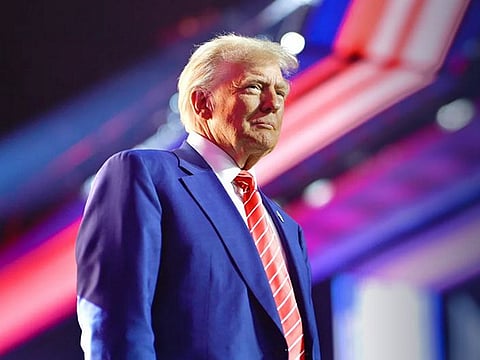

BENGALURU: With concerns growing about the effects of US President Donald Trump's proposed tariffs, experts say the IT services industry is not an exception as the US is always a major destination, and that they need to invest in more US-based services in order to avoid tariffs. According to them, significant tariffs placed on services could significantly disrupt the IT services trade.
Phil Fersht, CEO of HFS Research, told this newspaper that there will be pressure on the Indian government to lower trade barriers for US firms to create parity. "Currently, India’s tariff rate on US goods is 9.5% compared to only 3% in Indian goods, namely cars, textiles, steel and pharmaceuticals," he said.
He expects that "IT services contracts are likely to have a similar 9.5% imposed on them by the US government but could be as high as 20% depending on government policy, which is highly unpredictable."
Even if currently offshored services increase by about 10%, many will still be significantly cheaper than re-employing onshore as the wage costs are usually 30-70% higher. The short-term impact should be small, but we cannot ignore the longer-term effect, especially for areas requiring skilled workers that can be highly effective when boosted by AI tech, the chief analyst added.
However, Peter Bendor-Samuel, CEO of Everest Group, a research firm, is of the view that the IT firms will escape the tariff threat at least initially. He said, at this point, it seems unlikely that reciprocal tariff will significantly affect services and the Indian IT industry.
The new US administration has focused on physical goods and moving manufacturing back to the US. This plays to their blue-collar constituents that are focused on manufacturing jobs. To go after servicers would work against the technology sector, which backed Trump in the last election. Furthermore, it is far more complicated to place tariffs on services than physical goods, he added.
"Significant tariffs placed on services could significantly disrupt the IT services trade. The average savings firms experience by offshoring is 20%. Significant tariffs would eliminate all or most of these savings. The impact to the industry would take some time, but it would dramatically increase the use of AI and cause a repatriation of work back to the US. The impact of this would be devastating over a multiyear period to the Indian IT industry," the CEO of Everest Group added.
Service exports in 2023-24 stood at $341.11 billion in 2023-24, fuelled by the rise of IT, financial, and business services, according to the Commerce Ministry data.
Global Trade Research Initiative (GTRI) said the country's services sector is on track to outpace merchandise exports by 2030, as it is expected to reach $618.21 billion, edging past merchandise exports, which are projected at $613.04 billion.
"When services that may have required, for example, 100 people in India, can be run with 20 skilled workers onshore, there are both significant geo-political and straight-up business cases to consider. The changing nature of the US workforce supports the possibility of services coming to the US as anxious businesses look to get ahead of global risk and uncertainty. Only a fool would ignore the magnitude of what is happening in our geopolitical landscape,” Phil Fersht opined.
Support growth of GCCs
The chief analyst of HFS Research also added that Indian IT firms need to keep developing their AI capabilities to scale their services and make them more efficient to deliver. They also need to invest in more US-based services to avoid tariffs. Another area is to support the growth of GCCs (global capability centres) in India, which are more likely to avoid tariffs as they focus on local employment rather than contractual outsourcing.
When asked given the present situation, what Indian IT firms should do? Peter Bendor-Samuel said if tariffs are put in place, IT firms might work with their US clients to lobby the administration to remove them. “Almost every major US firm is dependent on Indian IT and will fight hard to keep access to it,” he said.
They might aggressively move to master AI infused services as this will allow them to hedge their bets as AI disrupts their business model. “Sustained significant tariffs will dramatically accelerate this transformation,” he said.
GTRI recently stated that software and IT services, grouped under the broader category of ‘Telecommunications, Computer, and Information Services,’ contributed $190.7 billion to the country’s exports in FY2024. This segment represents 56.2% of the nation’s total services exports, with about 80% of these delivered digitally.
In its recommendation to boost the country's services exports, it suggests diversifying IT exports beyond the US as it is a critical first step, as the US accounts for 70% of the country’s IT export revenue.